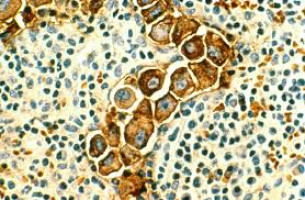
An innovative project launched in October 2015 may help expedite metastatic breast cancer genomics research and provide leads for development of new treatments.
In the seven months since the launch, more than 2,000 patients have enrolled in the research study designed to collect and analyse health records, tumour specimens and saliva samples from patients with advanced breast cancer.
The study was be featured in a press briefing and presented at the 2016 American Society of Clinical Oncology (ASCO) Annual Meeting.
“In the United States, only a small fraction of the 150,000 women and men living with metastatic breast cancer receives care at centers that conduct research on tumour samples,” said lead study author Nikhil Wagle, MD, a medical oncologist at Dana-Farber Cancer Institute in Boston and an associate member of the Broad Institute in Cambridge, Mass. “With this new approach we hope to empower patients to directly participate in research, regardless of where they live, and contribute to the effort to improve outcomes for all people with advanced breast cancer.”
About the Study
At the start of the project, launched by the Broad Institute of MIT and Dana-Farber Cancer Institute, researchers partnered with patients and patient advocacy groups to develop a website (mbcproject.org) that enables patients with metastatic breast cancer from across the country to participate.
Using a variety of channels, including social media, newsletters, blogs, and advocacy, the researchers were able to recruit patients directly, rather than through the patients’ individual physicians and institutions.
To enroll in this ongoing study, patients are asked to answer questions about their cancer and the treatments they have received.
They are then asked to give consent to participate and following this step, researchers obtain patient medical records and collect portions of their stored tumour samples.
Patients are also asked to provide saliva samples using an at- home collection kit.
Ninety-five percent of patients enrolled to date have provided detailed information about their cancer, their treatments, and their experiences.
More than 1,100 have consented to have copies of their medical records collected and have agreed to allow researchers to conduct next-generation sequencing on the tumour and saliva specimens.
More than 400 saliva samples have already been sent to the Broad Institute by participants.
The overarching goal of the Metastatic Breast Cancer Project is to provide leads for development of better treatments for this deadly disease.
The researchers hope that insights from medical records and genomic information of thousands of patients will yield much-needed insights into the biology of metastatic breast cancer, with an initial focus on groups of patients that have been otherwise challenging to identify with traditional approaches: those with long and/or extraordinary response to therapy; those who have metastatic disease at initial diagnosis; those who are diagnosed at a young age; and racial/ethnic minorities.
Patients in each of these categories have already enrolled in the study.
These include multiple groups of “exceptional responder” patients, each of which consists of dozens of patients who report extraordinary responses to specific therapies, including both targeted therapies and conventional chemotherapies.
Next Steps
Researchers are now conducting next-generation sequencing on saliva and tissue samples that have been collected.
In the coming months, the researches will explore new ways of gathering patient genomic data, including the pilot of a “blood biopsy” component of the project whereby researchers will study circulating tumour DNA from participants to gain insights into research questions that cannot be answered by analysing tissue samples alone, such as the mechanisms of resistance to therapies, and the evolution of metastatic breast cancer over the course of treatment.
In addition, the project will share widely the de-identified clinical and genomic data generated in the project, using a data-sharing platform that is currently being developed as well as existing data sharing platforms housed by the National Institutes of Health.
“If patients are willing to share their samples, their stories, and their data with the MBCproject, it’s our responsibility to take the data we collect and generate and share it openly with the research community to accelerate research,” Dr. Wagle said. “It may not be my team that makes the next big discovery. We want other researchers to look at this so we can increase our chances of shared success.”
The researchers also plan to launch similar patient partnership initiatives in other cancers in the near future.
Watch the video interview and press conference for more.
Source: ASCO
The World Cancer Declaration recognises that to make major reductions in premature deaths, innovative education and training opportunities for healthcare workers in all disciplines of cancer control need to improve significantly.
ecancer plays a critical part in improving access to education for medical professionals.
Every day we help doctors, nurses, patients and their advocates to further their knowledge and improve the quality of care. Please make a donation to support our ongoing work.
Thank you for your support.